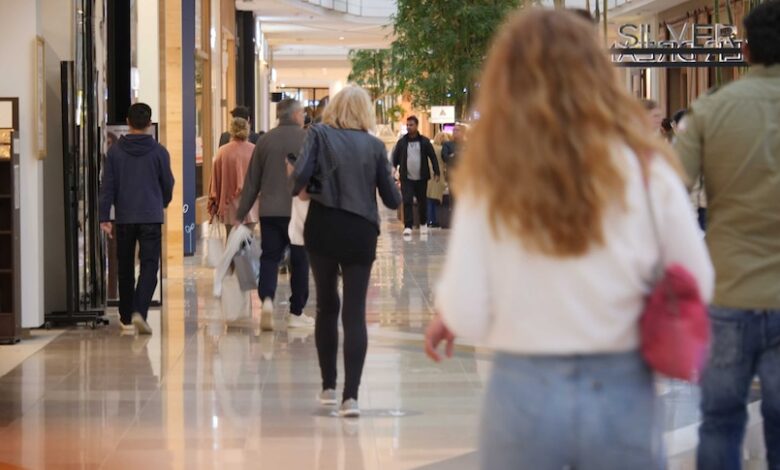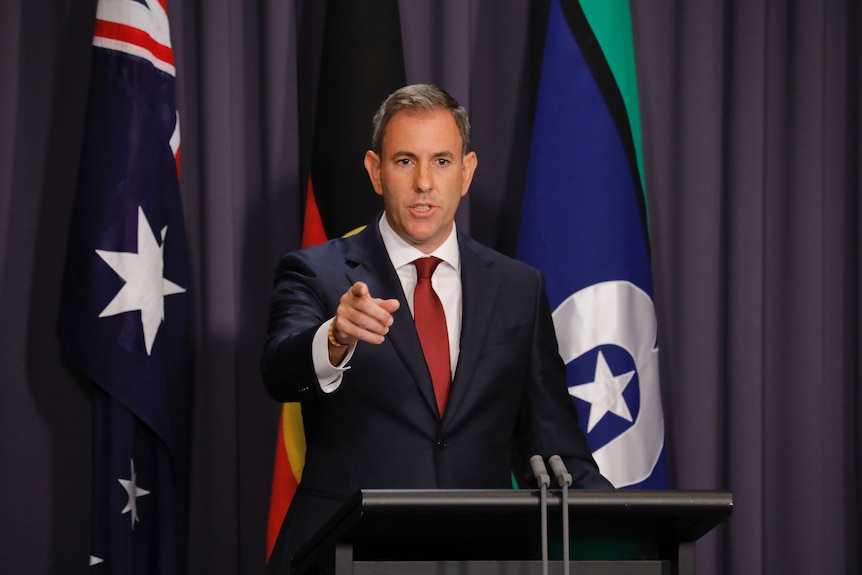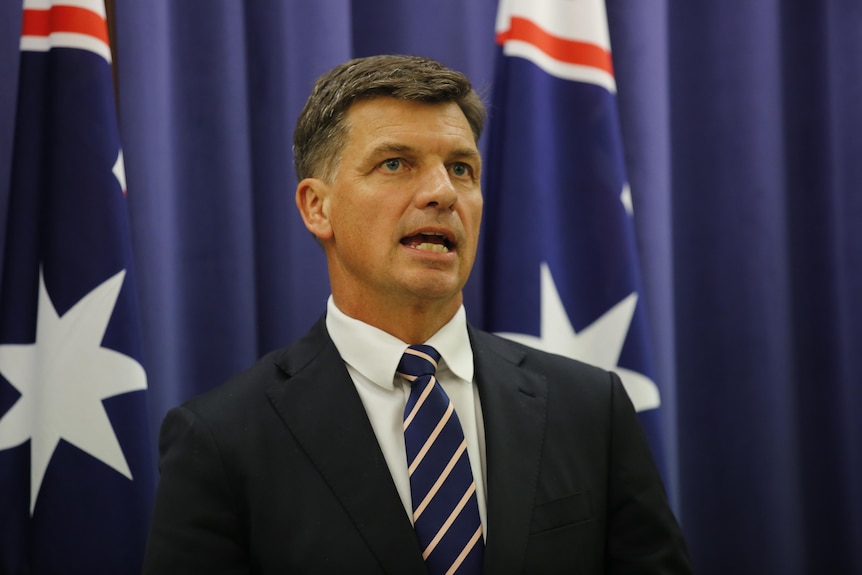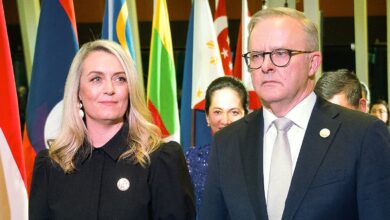‘Tepid’ GDP extends Australia’s per capita recession, hinting November’s interest rate rise may have been ‘unnecessary’

Australia’s economy grew “a tepid” 0.2 per cent over the final three months of 2023, and 1.5 per cent over the year, according to the Australian Bureau of Statistics (ABS) National Accounts.
Although the result was broadly in line with most economist forecasts, Westpac senior economist Andrew Hanlan said the slowdown was broadening from household consumption to other parts of the economy.
“Australia’s economy limps along, output expanding by a tepid 0.2 per cent,” he noted.
“Domestic demand slows to a near stand-still, inching 0.1 per cent higher.”
The ABS noted that growth had slowed across each quarter of 2023.
Deloitte Access Economics partner Stephen Smith pointed out that is the slowest annual rate of economic growth since the 1990s recession, if the pandemic and GST introduction are excluded.
And it is even worse when Australia’s high rates of population growth relative to most of the developed world are factored in.
“Today’s data shows that the Australian economy merely crawled to the end of the 2023 calendar year,” he noted.
“On a per person basis, the economy shrank by 1.0 per cent over the 12 months to December 2023.”

ABC News: Nick Haggarty
)
However, Treasurer Jim Chalmers argued the fact GDP grew at all was a major achievement.
“The UK and Japan both finished the year in recession,” he observed in a media statement.
“Around a quarter of G20 nations have recorded a technical recession or narrowly avoided one, and yesterday Chinese authorities announced that they expect a period of softer growth to continue there.”
‘Not enough demand to justify’ November rate hike
The weakness of consumers was reflected in an anaemic 0.1 per cent rise in household spending over the quarter, entirely driven by essentials, not discretionary purchases.
“Households upped their spending on essential items like electricity, rent, food and health,” noted ABS head of national accounts, Katherine Keenan.
“Meanwhile they wound back spending in discretionary areas including hotels, cafes and restaurants, cigarettes and tobacco, new vehicle purchases and clothing and footwear.”
Mr Smith said Wednesday’s data “is further evidence that the November 2023 interest rate hike by the RBA was unnecessary”.
“There is simply not enough demand in the Australian economy to justify the RBA’s claim about ‘homegrown’ inflation,” he continued.
“Monetary and fiscal policy need to pivot away from containing inflation to stimulating economic growth.”
Betashares chief economist David Bassanese agrees, noting that, “somewhat perversely”, higher interest rates are one reason for falling new home building, exacerbating the jump in rents that is slowing the decline in inflation.
“With falling inflation and recessionary levels of consumer spending and housing construction, the economy warrants less restrictive policy conditions within the next three to six months,” he wrote.
Accounting software provider Xero’s small business index — compiled from the actual sales, wages, jobs and invoice payment data from its Australian users — posted its largest monthly decline in December since the pandemic shut swathes of the economy in April 2020.
At 89 points, the index was at it lowest level since September 2020, and it was the first time in a year that the index fell below 100 points, which is the pre-pandemic average for small business performance since 2007.
The biggest drag was the smallest sales growth in three years, with particularly weak results for retail, wholesale and agriculture.
“Multiple interest rate rises and higher-than-usual inflation are impacting household budgets and we can see a shift in the December data, particularly in the retail sector,” noted Xero economist Louise Southall.
“It’s important to acknowledge that the soft December result happened when retailers and hospitality businesses, in particular, expect to be busy with heightened consumer activity.
“Looking ahead, conditions are likely to remain challenging as interest rates stay high and inflation is still above the central bank’s target.”
Real household incomes rise, but still well below previous peaks
Mr Chalmers has recently hinted that the upcoming May federal budget would focus more on promoting growth, but he is also arguing that the worst is behind Australian households, with wages per employee up 5 per cent over last year, ahead of inflation, and income tax bills falling by 3.3 per cent from record highs in the September quarter.
“We see stronger and sustainable wage growth as part of the solution to the challenges Australians confront,” he said.
“The welcome pick-up in wages, the resilient labour market and a fall in income tax payable contributed to a rise in the savings ratio to 3.2 per cent.
“It also means that real gross disposable household income is now rising in annual terms, growing 1.5 per cent in the quarter to be 0.3 per cent higher through the year.”
Shadow Treasurer Angus Taylor said, despite productivity increasing over the past two quarters, it is still lower than before the Albanese government took office.

“After almost two years of Labor, Australians’ quality of life has fallen dramatically due to higher taxes, high inflation, higher interest rates and low productivity,” he noted in a media statement.
“Australia is in an entrenched GDP per capita recession, a consumer confidence recession, and we are experiencing the slowest two quarters of consecutive GDP growth in almost 18 years outside of the pandemic.”
Mr Hanlan noted there is a long road ahead for households to recover from the global inflationary period and policy response to it over the past couple of years.
“The combined impact on Australian households of high inflation and contractionary policy settings is clearly biting,” he noted.
“Real household disposable income has been contracting, in the face of high inflation, higher interest rates and additional tax obligations — albeit there was a partial rebound in the December quarter, up by 1.5 per cent, to still be -4.6 per cent below September quarter 2021.”
Government spending helps avert economic contraction
The federal government played a significant role in avoiding economic contraction during the December quarter, according to the ABS data.
“Government spending and private business investment were the main drivers of GDP growth this quarter,” observed Ms Keenan.
The government contribution included a one-off boost from all the polling officials temporarily employed to run the Indigenous Voice to Parliament referendum.
“The growth in government expenditure was driven by government benefits for households, with more spending on medical products and services and higher employee expenses across commonwealth departments,” Ms Keenan explained.
“The Referendum on an Aboriginal and Torres Strait Islander Voice held during the quarter also contributed to the rise in employee expenses.”
Net exports also contributed heavily to the small increase in GDP, mainly due to a slump in imports as businesses destocked due to weakening consumer demand.




